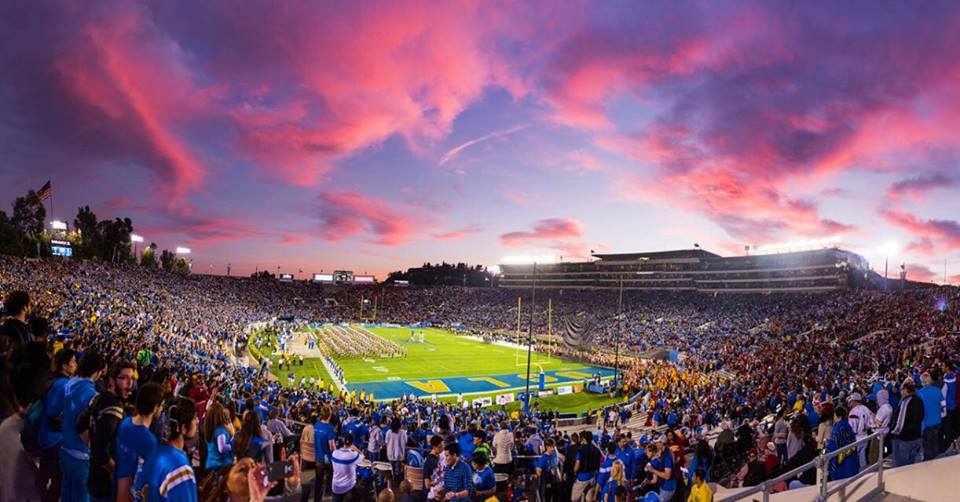
With decreased revenues expected due to the COVID-19 pandemic and debt servicing related to facility upgrades, the financial future of the Rose Bowl will depend on changes in the historic venue’s operations.
These are not good times in the venue world, but Pasadena’s Rose Bowl may be disproportionately impacted because of a perfect storm of setbacks. Home to the UCLA Bruins football team and the eponymous holiday classic, the Rose Bowl faces new challenges from both new (SoFi Stadium) and renovated (Los Angeles Memorial Coliseum) football stadiums in the greater Los Angeles market–challenges that caused the Rose Bowl Operating Company to embark on a decade-long $183-million renovation. The financial aftereffects from that renovation, which ended in 2016, are still being felt: this week the Pasadena City Council approved $11.5 million toward that debt.
Add to that changes needed for COVID-19 mitigation and the general slump in the college-football world, and there you have the aforementioned perfect storm. From the Los Angeles Times:
“You’re seeing changes in overall trends,” said David Carter, an associate sports business professor at USC. “Getting people to turn out for college football games is a real challenge.”
That has been especially true with UCLA, which has struggled on the field and finished last season with an average attendance of 43,848, the lowest since the team moved into the stadium in 1982.
Fewer fans mean less in parking and concession revenue.
So what’s the solution? Increasing revenue by thinking of events past college football. That means more emphasis on concerts despite the competition from both football stadiums and MLS soccer stadiums. It means more pop-up events and larger gatherings like marathons.
And it may also mean cutting expenses on the administrative side.
One thing is for sure: members of the Pasadena City Council have little appetite for cutting regular checks to cover the roughly $200 million left in debt service. The Rose Bowl did manage to eke a small profit in 2019 thanks to additional smaller events and cost cutting; that seems to be the formula.
Image courtesy Rose Bowl Stadium.
RELATED STORIES: Despite Challenges, Rose Bowl Turns Profit in Fiscal 2019; Outgoing Board President: Pasadena Should Help Stabilize Rose Bowl Finances
